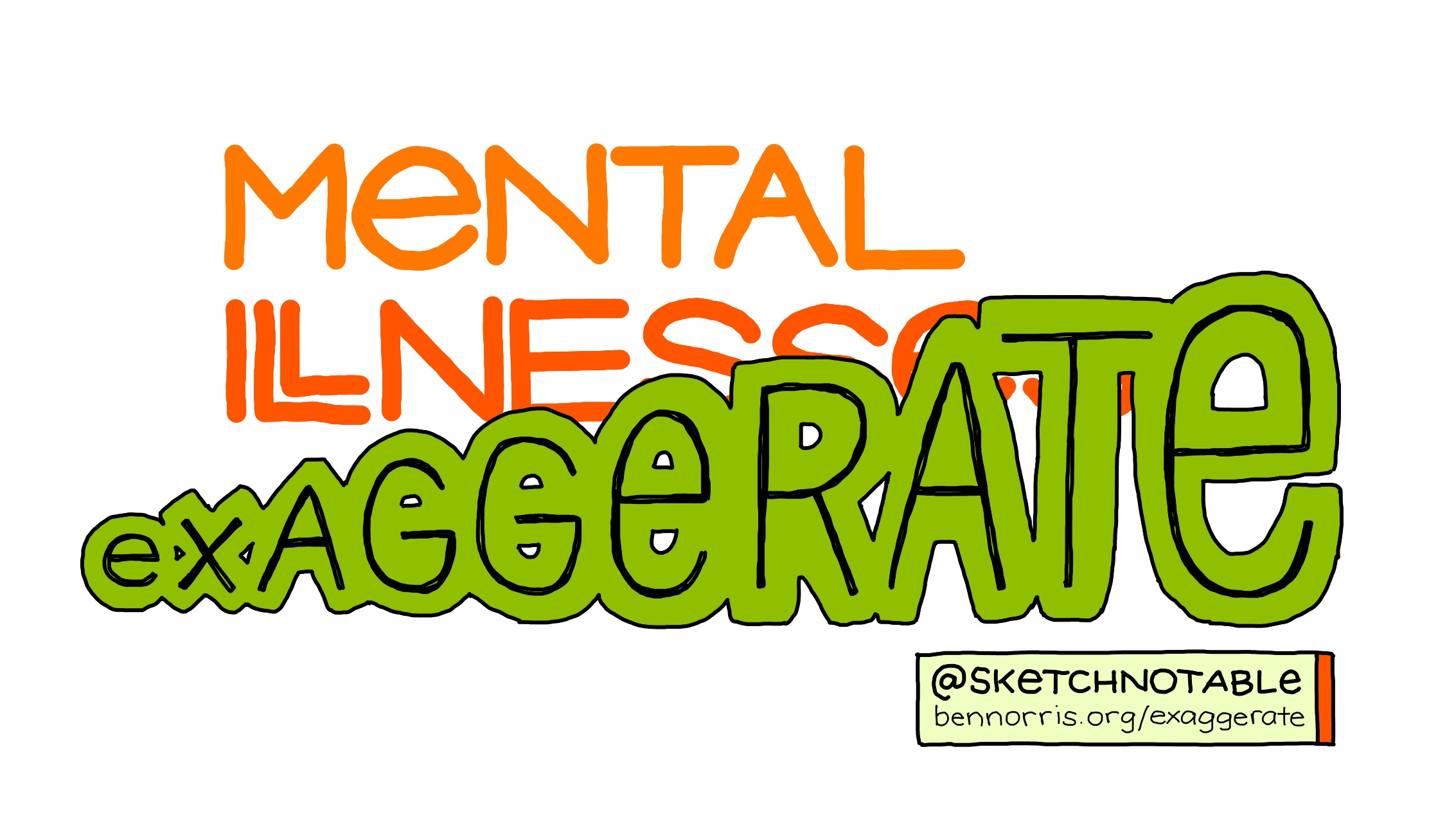As I have experienced, learned, and shared about mental health, I have become convinced of two truths that are extensions of the same idea—mental illnesses exaggerate. On the one hand, mental illnesses blow things way out of proportion. And on the other hand, we all experience a degree of most mental illnesses—the diagnosable forms are merely natural responses carried too far, or activated in the wrong setting.
Take my old friend, obsessive-compulsive disorder. We’ve all had the experience of feeling that something was off. The picture wasn’t straight, the song hadn’t resolved and ended properly, the story still had unanswered questions. OCD steps in and won’t let it go. Your mind stays captivated, unable to move on. There is no telling what your brain will latch on to—it seems completely arbitrary.
And there are so many variations of OCD. Contamination OCD claims that sickness or death could result from interacting with something unclean. Counting OCD says that something terrible will happen if you don’t perform something the correct number of times. Checking OCD convinces you that you need to verify, just one more time, that the stove was turned off, or the curling iron was unplugged, or the garage was shut. Scrupulosity OCD, my special flavor, says that if you don’t do something the right way, you are going to hell or some other extreme condemnation if you are not religious. It is like perfectionism with the constant threat of eternal damnation. And there are so many more kinds.
One of the most frustrating aspects of a mental illness is when you know its demands are ridiculous, but they are still too strong to resist.
We know that it doesn’t make sense to bring your own silverware and eat on restaurant dishes. We also think it is dumb that we have to put the volume to an even number when that’s louder or quieter than we actually want it. We don’t enjoy washing our hands until they crack and bleed. We don’t want to walk up and down the stairs repeatedly, but even less do we want our family to die if we fail to do so.
None of us want to live in the exaggerated ways that our brains claim to be necessary. Sometimes we just can’t help it.
Most of the time, the issues in our lives caused by mental illnesses come down to a single skill, or the lack thereof—distress tolerance. The ability to sit in the discomfort we feel is the most important skill to develop.
When the distress feels beyond our capacity to tolerate, we do something to alleviate it. What causes that distress, how acutely we feel it, or what our brain says we must do to mitigate it, are all extremely personal and unique. But the experience of having distress and being forced to confront it is the most shared of human experiences.
The frequency and severity to which we deal with this distress is what defines a disorder. You can be a depressed or anxious or obsessive person without being diagnosed with a mental health disorder. But when it interferes with your life to a degree that becomes unmanageable, then it is classified as a mental health condition.
A diagnosis often serves merely as a form of shorthand to describe a recognizable set of symptoms. This can be extremely useful when seeking professional help. Armed with the shorthand, you can more quickly acquaint someone with some of your unique circumstances.
The similar uniqueness of mental illnesses is paradoxical. The more we learn, the more we know how unique our experiences are. We can never truly know how another person feels. No two of us experience the same things in the same ways.
However, since we all experience that gap of understanding, it provides a reliable handle to access the empathy required to sit with another in their emotions.
I don’t know, and can’t know, how you are feeling right now. And that is something I know that you have experienced as well.
That is how we can preserve authenticity in our moment of connection. I don’t have to have experienced exactly what you did. I don’t need a perfect knowledge of how you feel. What I do need is the willingness to sit in the discomfort with you.
To experience empathy is not to achieve omniscience. It is merely to recognize the echoes of feelings you have experienced in the experience of another and to choose to sit in those emotions together.
And since we have all tasted of distress, no matter what is causing that for someone else, we can be there with them in that moment.
It can look something like this:
I have no idea what it feels like to be paralyzed by the fear of what would happen if you walked an odd number of steps. But I do know how terrible it was to feel powerless and worry that I was guilty of hurting someone. I can sit here with you in this. You don’t have to explain yourself or change your experience to make me more comfortable.
When we see someone going through something incomprehensible to us, we can find common ground. Accessing our shared humanity is a crucial part of compassion, including self-compassion.
Acknowledging that the suffering of another is often just an exaggeration of something we know and have felt can allow us to connect to people in ways we didn’t realize were possible.
We truly are all in this together.

